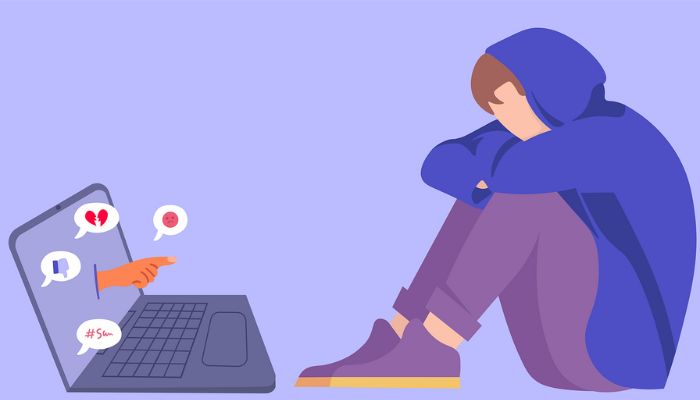How cyberbullying affects mental health
The likelihood of cyberbullying rises as people use and are exposed to social media more frequently
January 10, 2023

Both the victim and the offender of cyberbullying are at risk of developing mental health problems like depression and anxiety especially since it often involves the use of electronic gadgets.
Cyberbullying, which can take on many different forms, including sending threatening emails, transmitting private photos or messages, or posting on social media sites, can progress to the same seriousness as traditional bullying.
What is cyberbullying?
Bullying is a repetitive, intentional, and unprovoked hostile behaviour used to cause injury. It is frequently carried out by someone who has control over the victim on a physical, social, or psychological level. Cyberbullying refers to the same dynamics of behaviour when it is carried out through the use of technology, the internet, or texting and calling.
Because of the anonymity and constant access that cyberbullies have to their victims, cyberbullying typically manifests as a pattern of disrespectful, threatening, humiliating, or other negative encounters.
Bullying can take many different forms and happens at different rates depending on culture and demographics, but it affects kids and teens at about the same rates regardless of family income or level of education. It is estimated that rates of cyberbullying are likely higher than those of traditional bullying, which affects over a quarter of adolescents either as bullies, victims, or both.
The likelihood of cyberbullying rises as people use and are exposed to social media more frequently. Threatening, hostile, demoralising, or abusive remarks or messages, as well as manipulated images or videos, can be generated and published outside of the victim's control before they have a chance to respond on social media sites that permit free and open commenting.
People may keep to themselves the real-life instances of online bullying from friends and family out of embarrassment, which ends up increasing feelings of loneliness, sadness, and anxiety. Lack of knowledge and assistance can also make it difficult for victims to talk about their issues, which can result in poor mental health.
Mental health of cyberbullies
Studies on the psychology of traditional bullies reveal that they frequently have more favourable attitudes toward violent reprisal, apathy, or satisfaction while bullying others or when they themselves are the victims of bullying and believe that the victim deserves it.
It has been suggested that the increased anonymity and larger audience available to cyberbullies contribute to their perceptions of power. It has been asserted that the absence of a prompt reaction to their behaviour may inspire even more severe bullying. Many cyberbullies also engage in traditional bullying, and in the absence of face-to-face interactions and prompt retaliation against their aggressiveness, their lack of empathy is likely to be amplified.
Students who engage in cyberbullying have higher rates of stress, depression, and anxiety than students who do not. According to Ybarra and Mitchell (2004), among those who cyberbullied, 39% dropped out of school, 37% displayed delinquent behaviour, 32% regularly used drugs, and 16% had severe depression.
Despite the fact that the two categories frequently substantially overlap, some research implies that cyberbullies have depression rates that are lower than those of traditional bullies.











